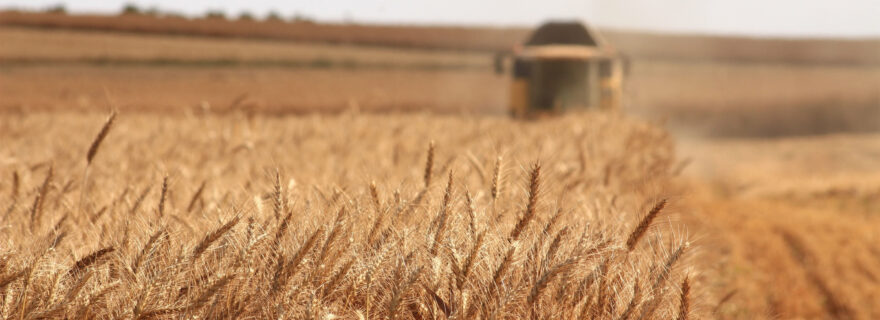Is Africa neutral on the Russia-Ukraine Conflict?
Europe is witnessing its first inter-state conflict since the conclusion of the Yugoslav wars. The ongoing Russia-Ukraine conflict has not only affected the European peace and security architecture, but sanctions levied against Russia have had unprecedented effects are felt on global supply chains.
When the UN Security Council called for a vote to condemn the actions of Russia. Out of 54 states in Africa, only 28 African countries voted in favor of the resolution, 17 countries abstained, one voted against the resolution, and 8 countries were not present. This is a demonstration that the continent is divided as to the best way to react to the conflict. It is also important to note that during Russia's annexation of Crimea in 2014, 26 African countries abstained from condemning Russia. In this blog I unpack the question of why African countries are trying to be neutral about this conflict.
Russia and Ukraine are major exporters of oil, corn, and wheat to Africa. The impact of the conflict is already affecting many countries as prices for basic commodities have increased. Northern Africa which is overly dependent on Russia and Ukraine for corn and wheat are the most affected since the start of the conflict. For example, Egypt imports 70% of its wheat from Russia. Between 2016 and 2020, African countries spent more than 5.1 billion dollars on importing wheat from Russia and Ukraine.
In addition, humanitarian agencies in Africa using cereals to assist those in need will be highly affected. Somalia is facing the worst drought in the history of the country and currently, the humanitarian assistance available does not match the need on the ground. Other countries which the United Nations have identified as requiring food assistance include the Democratic Republic of Congo, Ethiopia, Chad, South Sudan, Burkina Faso, and Madagascar.
Russia is also a considerable exporter of oil to many African countries and the world. The immediate effect of the conflict has been a global rise in oil prices. As Africa is still trying to recover from the COVID-19 pandemic, high oil prices are already unbearable for the economies of many states. Nigeria had to reduce internal flights because there was no fuel for local planes, and currently, prices for flight tickets on the continent have also skyrocketed because of the global oil prices. In Kenya, motorists are queuing for hours looking for fuel.
An increase in the price of fuel automatically leads to an increase in the prices of goods and services. The continent is currently witnessing a hike in prices for basic commodities. This has worsened the standard of living for many middle-income families pushing many families into poverty. Furthermore, many African countries rely on agriculture and the export of agricultural products. Russia is one of the main exporters of fertilizers for Africa, and the war has resulted in higher prices for fertilizer on the continent. This rise in prices for fertilizer means lower agricultural production, which will result in greater food insecurity on the continent.
Russia has also become a key player in Africa's peace and security. As relations between some Francophone African countries like the Central African Republic, Mali, Burkina Faso, Guinea, and the West remain unsettled, these countries have turned to the Wagner Group, a private military group that is alleged to have close ties with the Russian government to assist in security matters. The Wagner Group is playing a key role in assisting some governments in dealing with growing insurgencies and insecurity. However, as the conflict in Ukraine prolongs, it is not clear how committed the group will remain to African concerns.
Russia is also an arms supplier to Africa. It has been estimated that between 2016 and 2020, 18% of arms produced in Russia were sold to African countries. Many African countries find it comfortable buying arms from Russia because Russia does not put any demands on how the arms should be used. In 2021, Russia signed military cooperation agreements with Nigeria and Ethiopia, further cementing their influence on the continent. Though Russia is comparatively more isolated than before the war, Cameroon just signed a military cooperation agreement with Russia.
Conclusion
Africa as a continent has had its fair share of interference from Western Powers, and in some instances, showing support for dictatorial regimes like the Apartheid government in South Africa. Today’s African position on Ukraine is a mixed reaction based on previous experiences. Still fresh in the minds of many is the NATO attack on Libya which led to the destruction of the country.
Many African countries remain neutral to the conflict not because they agree with what is happening; attacking the sovereignty of another country is a ‘red line’ that many African countries like the rest of the world do not condone. Some of the reasons for neutrality include suspicion of the motives and intentions of NATO; the fear of returning to the Cold War era; the dependence on Russia for security; the need for Russian fertilizer and wheat etc. In addition, some countries like South Africa consider NATO as the cause of the conflict because of its expansion to the EAST.
Given the history of NATO on the continent and the current war between Russia-Ukraine, which is linked to NATO expansion East, politicians like Julius Malema (MP for the Economic Freedom Fighters in South Africa) have called for the removal of foreign military bases on the continent. In contemporary African societies, there is a disconnect between how the West looks at the global order and how Africa looks at the global order. The current order is discriminative and marginalizes Africans.


